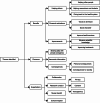Contribution and legacy: a qualitative study of older people's attitudes about sharing their routinely collected health data for research purposes in New Zealand
- PMID: 40448090
- PMCID: PMC12124040
- DOI: 10.1186/s12910-025-01212-6
Contribution and legacy: a qualitative study of older people's attitudes about sharing their routinely collected health data for research purposes in New Zealand
Abstract
Background: Older adults, especially those with dementia, are often excluded from health research due to physical and medical comorbidities, and the assumption that those with cognitive impairment won't be able to consent. Using routinely collected data for research purposes is a way to include older people in research, and therefore the benefits of research. However, very little research has been done to examine the attitudes of older people towards sharing their routinely collected health data for research purposes.
Method: Twenty-eight semi-structured interviews were conducted with older health service users in the Counties Manukau health district of Auckland, New Zealand. The interviews explored participants' views around the use of de-identified health data for health service improvement and health services research. Data were analysed using thematic analysis.
Results: Themes identified were: 1) Benefits: participants believed that there were benefits to sharing their health data such as helping others, improving health services, advancing scientific knowledge, and giving back to the health system; sharing health data was also seen as a reflection of good character, and people felt that their pre-existing views about whether they wished to share health data should be respected even if they were no longer able to consent. 2) Concerns: participants had concerns about sharing data with private companies, the use of inaccurate data, and the potential personal and societal consequences of sharing health data. 3) Expectations: participants encouraged collaboration between institutions in New Zealand, but expected data privacy to be maintained, processes to be transparent and cultural values around data to be respected; there was an expectation those sharing health data (patients or institutions) should benefit from any private sector gains.
Conclusion: Older people in our study were supportive of sharing their deidentified health data for research purposes provided that the research would benefit others, now and in the future. This provides more confidence in the use routinely collected health data of older people for research, provided that researchers handle data in a respectful way and use it to benefit communities while avoiding potential harms.
Trial registration: NA.
Keywords: Consumer perspectives; Data sharing; Ethics; Health information; Routinely collected health data.
© 2025. The Author(s).
Conflict of interest statement
Declarations. Ethics approval and consent to participate: Ethical approval for this study was obtained from the Auckland Health Research Ethics Committee, reference number AH22266, on 18 October 2021. Due to COVID restrictions within Aotearoa New Zealand at that time, the Auckland Health Research Ethics Committee provided ethical approval for informed verbal consent by amendment approved on 14 September 2022. Verbal informed consent was recorded as part of the video call interview. Before the interviews, participants were provided with the study information sheet (via email or post), which outlined the study’s objectives, potential risks, and information handling. During the video call interviews, the information sheet was further reviewed, and any questions were answered before verbal consent was obtained. All methods and procedures were carried out in accordance with relevant guidelines and regulations. Consent for publication: Not applicable. Competing interests: The authors declare no competing interests.
Figures
References
MeSH terms
Grants and funding
LinkOut - more resources
Full Text Sources


